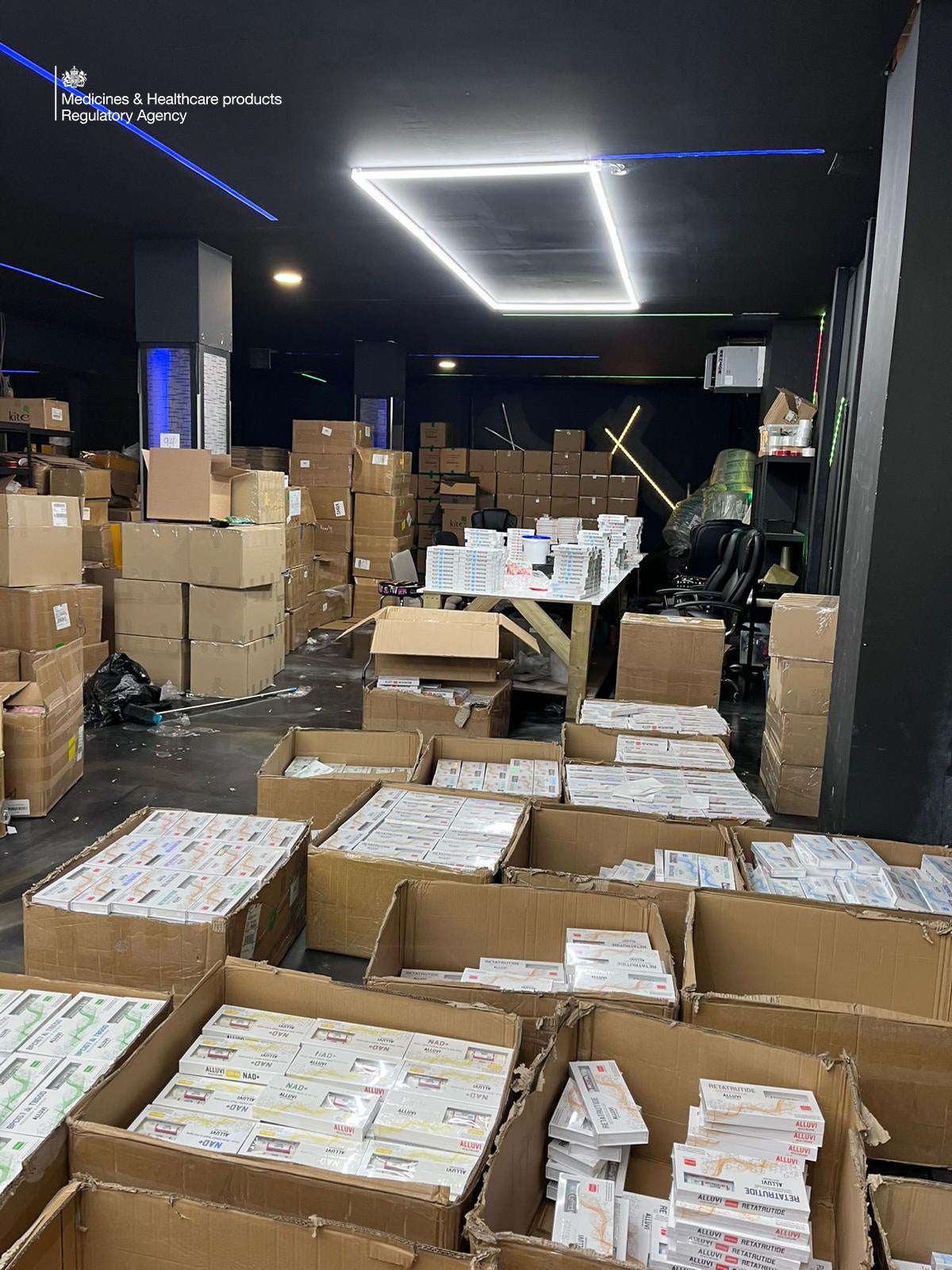Organised crime gangs are making their own branded weight loss drugs, the medical watchdog has warned.
Although these fake jabs have been designed to look like legitimate medicines, they are unlicensed and potentially deadly, according to the Medicines and Healthcare products Regulatory Agency (MHRA).
Drugs such as Wegovy and Mounjaro have helped more than 1.5 million people lose extra weight in the UK alone, with 4 per cent of households currently using them. But fake versions of these drugs risk not only making people ill – but in some cases, they could be fatal.
Andy Morling, head of the MHRA’s criminal enforcement unit, told The Guardian it had recently seen a new model of production “where criminals are putting investment into designing their own packaging and branding… and selling it purporting to be a genuine product”.
The trend of organised crime gangs making fake weight-loss medication has only just emerged, leading the MHRA to conduct the largest seizure of trafficked weight-loss drugs ever recorded by any global law enforcement agency.

More than 2,000 unlicensed retatrutide and tirzepatide pens due to be sent to customers were seized by MHRA in a raid on an illegal weight-loss drug factory in Northampton last month.
The weight-loss pens were empty and ready to be filled with chemical ingredients.
The street value of the finished weight-loss products alone is estimated to be more than £250,000.
Mr Morling previously warned: “People should be extremely cautious when buying medicines online. Prescription medicines should only be obtained from a registered pharmacy against a prescription issued by a healthcare professional.
“Taking prescription medicines sourced in any other way carries serious risks to your health – there are no guarantees about what they contain, and some may even be contaminated with toxic substances.”
He added: “These products are untested, unauthorised, and potentially deadly. By taking this organised criminal network out of operation and stopping tens of thousands of potentially fatal products from entering circulation, we’ve prevented a serious risk to public health.”
MHRA explained in The Guardian report that it had a “significant number” of criminal investigations on its books, but does not “treat them all as prosecutions”. Instead, “the priority in every case is public safety by removing products from the market”.
Mr Morling told the newspaper that the lines between medicine and cosmetic treatments had become “blurred” and that beauty salons are selling the products not “realising that they are selling medicine that could end up giving them a custodial sentence”.
Health secretary Wes Streeting said: “Don’t buy weight loss medications from unregulated sources. Talk to your GP, seek NHS advice, and don’t line the pockets of criminals who don’t care about your health.
“Safe, appropriate, licensed obesity drugs can greatly benefit those in need if taken under medical supervision, and I urge people to only purchase and use them with the approval and oversight of medics and pharmacists.”







